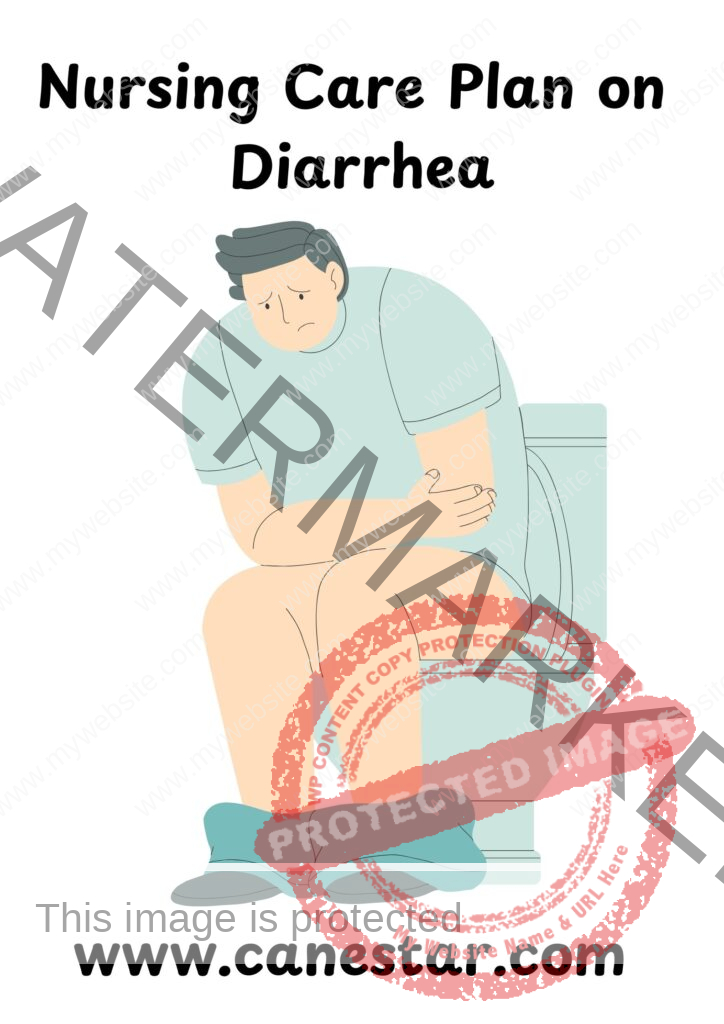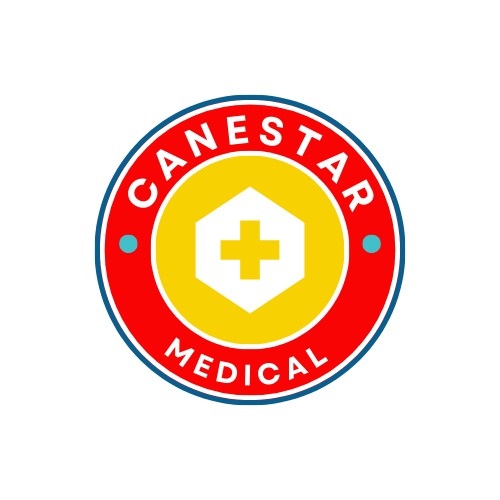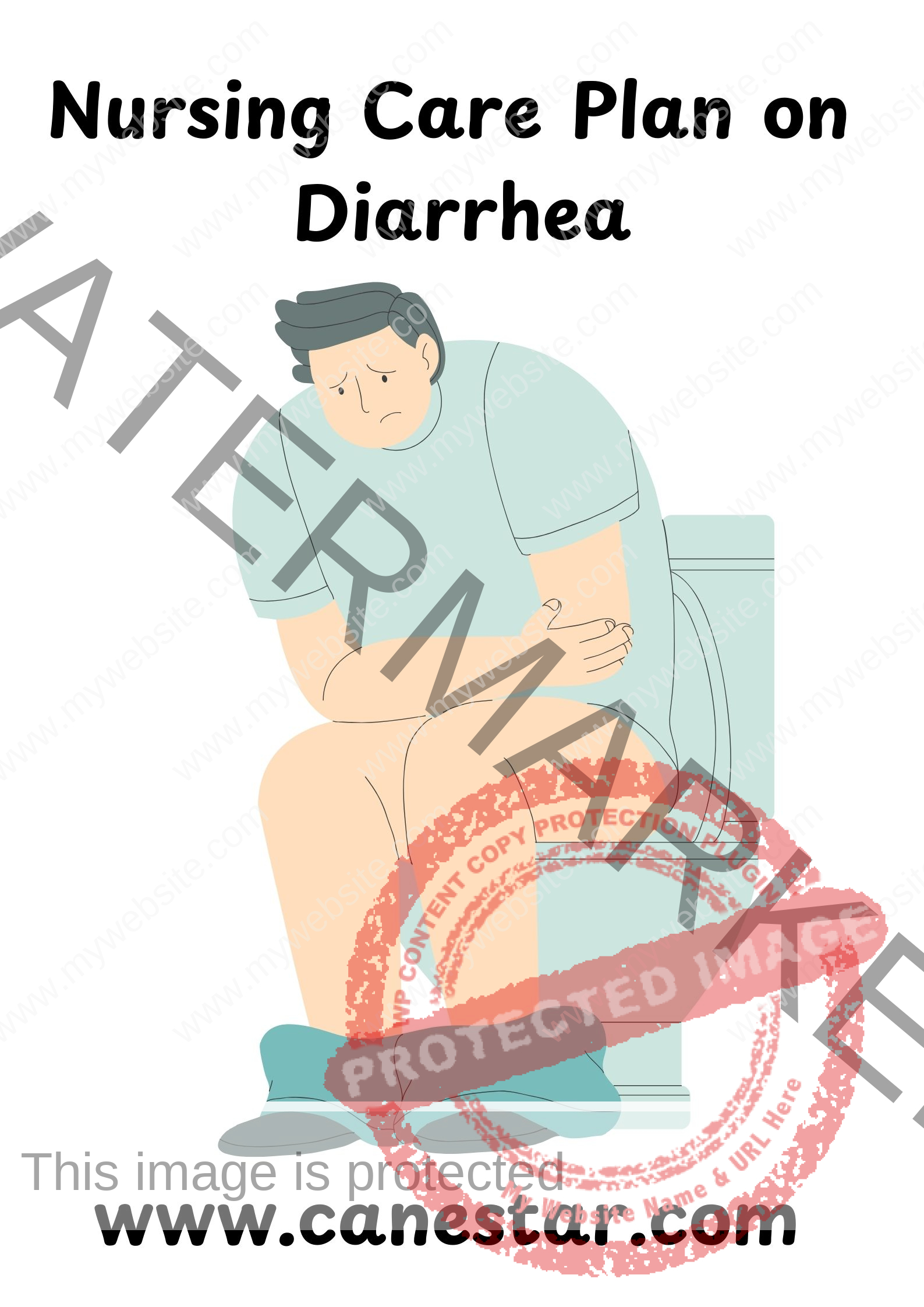NURSING CARE PLAN FOR DIARRHOEA
NURSING CARE PLAN FOR DIARRHOEA
NURSING CARE PLAN ON DIARRHOEA
Diarrhea is characterized by the frequent passage of loose, watery stools, which can lead to dehydration, electrolyte imbalances, and other complications. It may result from various causes, including infections, food intolerances, medications, or underlying medical conditions like irritable bowel syndrome (IBS) or inflammatory bowel disease (IBD).
Types of Diarrhea:
Acute Diarrhea:
- Lasts for a short duration, usually less than 2 weeks.
- Common causes include infections (bacterial, viral, or parasitic), food poisoning, or medications like antibiotics.
Chronic Diarrhea:
- Persists for more than 4 weeks.
- Often associated with underlying health issues like Crohn’s disease, ulcerative colitis, IBS, or malabsorption syndromes.
Causes of Diarrhea:
Infections:
- Viral: Norovirus, rotavirus, and adenovirus.
- Bacterial: Salmonella, E. coli, Campylobacter, and Shigella.
- Parasitic: Giardia, Cryptosporidium, and Entamoeba histolytica.
Food Intolerance or Sensitivity:
- Lactose intolerance or sensitivity to gluten (celiac disease).
Medications:
- Antibiotics can disrupt the normal gut flora, leading to diarrhea.
- Laxatives and chemotherapy drugs can also cause diarrhea.
Medical Conditions:
- IBS, IBD (Crohn’s disease, ulcerative colitis), celiac disease, and pancreatitis.
Stress and Anxiety:
- Psychological stress can affect the gut, causing diarrhea.
Dietary Factors:
- Consumption of fatty, spicy foods or caffeine.
Symptoms of Diarrhea:
- Frequent, watery stools
- Abdominal cramping and pain
- Nausea or vomiting
- Fever (in case of infections)
- Fatigue
- Dehydration (dry mouth, decreased urination, dizziness)
Complications:
Dehydration:
- Loss of fluids and electrolytes, especially sodium, potassium, and chloride.
- Symptoms: Dry mouth, thirst, fatigue, dizziness, and decreased urination.
Electrolyte Imbalance:
- Can lead to muscle cramps, weakness, and irregular heart rhythms.
Nutrient Malabsorption:
- Chronic diarrhea may impair the absorption of nutrients, leading to deficiencies.
Diagnosis:
Physical Examination:
- Evaluation of dehydration, abdominal pain, and overall condition.
Stool Tests:
- To identify the presence of pathogens (bacteria, viruses, or parasites), blood, or fat.
Blood Tests:
- To check for signs of infection, electrolyte imbalances, or malabsorption.
Endoscopy or Colonoscopy:
- May be required for chronic or unexplained diarrhea to visualize the digestive tract.
Imaging Studies:
- X-rays or CT scans may be used to detect structural issues in the digestive system.
Nursing Care Plan for Diarrhea
Patient Information:
- Name: [Patient’s Name]
- Age: [Age]
- Diagnosis: Diarrhea (acute/chronic, infectious/non-infectious)
- Date: [Date]
Nursing Diagnosis:
- Diarrhea related to gastrointestinal infection, food intolerance, or inflammatory bowel disease as evidenced by frequent loose stools, abdominal cramping, and dehydration.
Assessment Data:
Subjective Data:
- The patient reports frequent loose stools (e.g., 6-8 times/day).
- Complains of abdominal cramps, nausea, and urgency to defecate.
- Reports feeling weak and dizzy.
Objective Data:
- Watery stools observed.
- Signs of dehydration (e.g., dry mucous membranes, sunken eyes).
- Elevated heart rate (e.g., 100 bpm) and low blood pressure (e.g., 90/60 mmHg).
- Reduced urine output.
Goal/Outcome:
Short-term Goal:
- The patient will have reduced frequency of diarrhea episodes and report relief from abdominal cramps within 24-48 hours.
Long-term Goal:
- The patient will demonstrate effective fluid and electrolyte balance and have normal bowel movements within one week.
Nursing Interventions:
Assess the Frequency, Consistency, and Characteristics of Stools:
- Monitor the number, volume, and consistency of stools.
- Note the presence of blood, mucus, or undigested food.
Rationale: Tracking stool patterns helps identify the severity of diarrhea and the effectiveness of interventions.
Monitor Signs of Dehydration and Electrolyte Imbalance:
- Assess skin turgor, mucous membranes, and urine output.
- Monitor for signs of electrolyte imbalances such as muscle cramps, confusion, or abnormal heart rhythms.
Rationale: Diarrhea can lead to dehydration and electrolyte imbalances, which require prompt correction.
Provide and Encourage Oral Rehydration Solutions (ORS):
- Offer small amounts of oral rehydration solutions (e.g., Pedialyte) frequently.
- Encourage fluid intake such as water, clear broths, and electrolyte-rich beverages.
Rationale: Oral rehydration solutions help restore lost fluids and electrolytes due to diarrhea.
Administer Antidiarrheal Medications as Prescribed:
- Administer antidiarrheal agents (e.g., loperamide) as ordered by the healthcare provider.
- Ensure antibiotics or other medications are given as indicated if an infection is the cause.
Rationale: Antidiarrheal medications reduce stool frequency, and antibiotics may be necessary for infections like bacterial gastroenteritis.
Maintain Accurate Intake and Output (I&O) Records:
- Monitor fluid intake and document the output, including the volume of diarrhea.
- Weigh the patient daily to assess for fluid loss.
Rationale: I&O records help evaluate the patient’s hydration status and the need for further fluid replacement.
Encourage Rest and Decrease Physical Activity:
- Advise the patient to rest and avoid strenuous activity.
- Provide a quiet environment to promote relaxation.
Rationale: Rest helps conserve energy and reduces gastrointestinal motility, allowing the body to recover.
Provide and Encourage a Bland, Low-Fiber Diet:
- Recommend foods such as bananas, rice, applesauce, and toast (BRAT diet).
- Avoid foods that can irritate the gastrointestinal tract (e.g., spicy foods, caffeine, dairy).
Rationale: A bland diet is easy on the digestive system and helps solidify stools.
Educate the Patient About Infection Control (If Infectious):
- Instruct the patient on proper handwashing techniques after using the bathroom and before meals.
- Advise the patient to avoid sharing utensils and personal items with others.
Rationale: Preventing the spread of infectious diarrhea is critical in minimizing transmission to others.
Prepare the Patient for Diagnostic Tests as Needed:
- Collect stool samples for culture and sensitivity or for ova and parasites if an infection is suspected.
- Assist with other diagnostic procedures such as colonoscopy or imaging if chronic diarrhea is present.
Rationale: Identifying the underlying cause of diarrhea is necessary for targeted treatment.
Evaluation:
- The patient reports a decrease in the frequency of diarrhea and relief from abdominal cramps.
- The patient’s hydration status has improved as evidenced by moist mucous membranes and normal urine output.
- The patient demonstrates understanding of dietary modifications and infection control measures.
- Diagnostic tests are completed, and appropriate treatment is ongoing.
- The patient’s stool frequency returns to normal, and electrolyte levels are within normal limits.
Documentation:
- Date and time of diarrhea episodes, including stool characteristics.
- Intake and output measurements and signs of dehydration.
- Interventions provided (e.g., medications, fluid intake) and patient’s response.
- Patient education and any modifications to the care plan based on the patient’s progress.
Signature: [Nurse’s Name]
Date: [Date]


